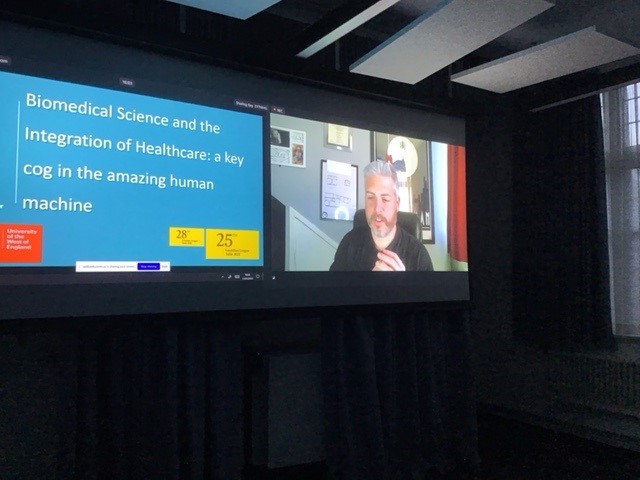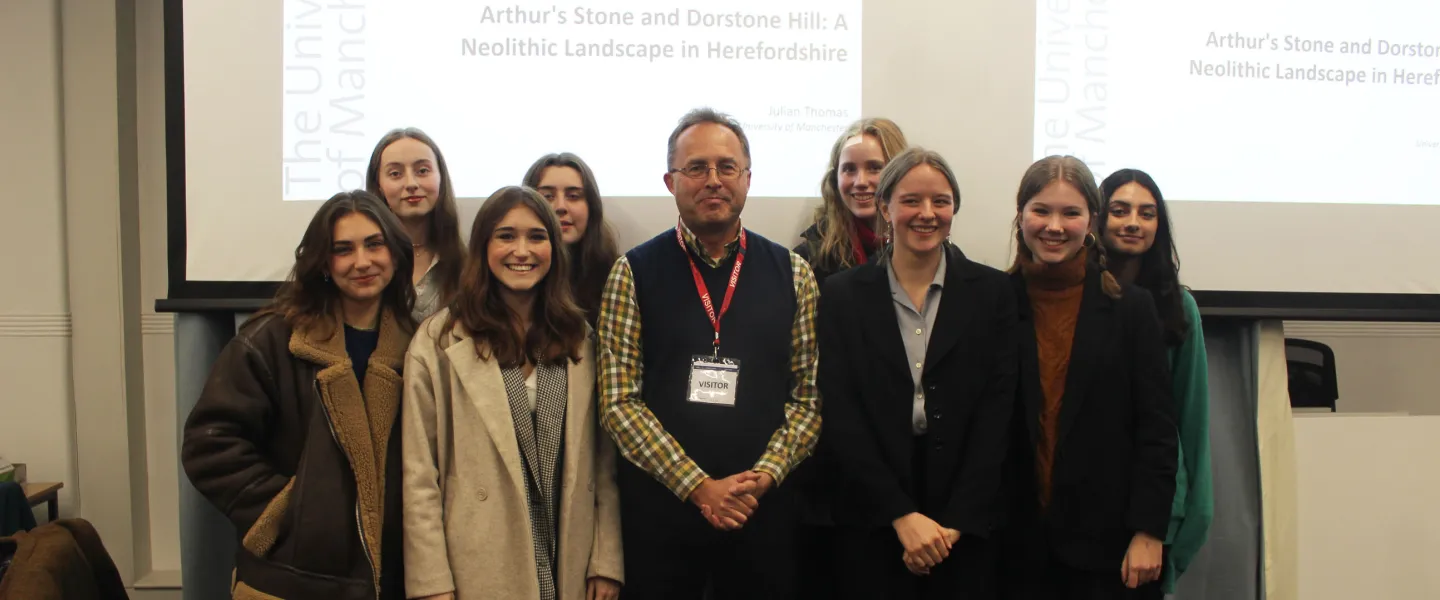Our Sixth Form Academic Lecture Programme is in full swing now with two outstanding lectures delivered to students in Year 12 recently.
The lectures with expert speakers aim to expand the knowledge of our pupils to help them stand out from the crown when applying to top universities and competitive courses.
‘Arthur’s Stone and Dorstone Hill: A Neolithic Landscape in Hereforshire’
Professor Julian Thomas, University of Manchester
News of astonishing finds at one of the UK's most important neolithic sites wowed pupils in Year 12 at the latest in this year's Academic Lecture Programme.
Leading academic Professor Julian Thomas reported on the fascinating discoveries from his team's month-long summer dig at the Arthur's Stone site in Herefordshire.
The excavation around the famous dolmen monument threw up no less than three neolithic long barrows or burial mounds. And the site has now generated such interest that it featured on BBC2's 'Digging for Britain' series over the Christmas period.
'We have evidence of an original hall structure that we believe was a meeting place for people with very different backgrounds and traditions," said Professor Thomas, of the University of Manchester.
"Over time this house of the living was replaced by a house of the dead. This is a situation that we have seen across Europe in Ukraine, Ireland and elsewhere. There is this link of memory between past generations and the present.'
Remarkable discoveries included evidence of a suspended wooden floor - the only one ever found in neolithic Britain. There was also sophisticated dry stone walling around key phases of the constructions.
The hilltop monument - dating from around 4000 years BC - had an impressive processional route to it marked out by an avenue of timbers.
"What we are looking at may be an emerging monumental complex - a focus for all kinds of different activities.'
You can watch the digging for Britain episode here

‘Biomedical Science and the Integration of Healthcare: a key cog in the amazing human machine’
Dr Chris Moore, University of the West of England
The many career routes and avenues opened up by biomedical study were set out for girls in Year 12 in the latest in the Queen’s Academic Lecture programme.
Dr Chris Moore revealed how biomedical study was often about looking for similarities and links between bodily structures and then using this as a basis for further investigation.
‘Kidneys, testes and ovaries all have very similar structures and organisation. Seeing thse links can be a key step in developing the bigger skills that become important at university,’ said Dr Moore, programme leader for biomedical science at the Univesity of the West of England.
‘These are the kind of skills that ultimately help with doing diagnostics in medicine - applying the knowledge you have within the context you are in.’
Dr Moore also set out the career paths that can await biomedical students, outlining among others the relatively the new role of physician associate within the NHS.
‘They are more advanced than a nurse but less advanced than a doctor. The role enables you to prescribe, giving the candidate clinical contact and patient care and making use of your biomedical degree.’
Dr Moore also mentioned his expertise in oral health as one of the key developers of the well known Pro-Enamel toothpaste.
